- Home
- Christie Golden
Shadow of Heaven Page 8
Shadow of Heaven Read online
Page 8
Paris helped light the torches. The Something-Or-Other turned slowly on the spit. Its scent made his mouth water. One thing was for certain. He’d never eaten this well in his life.
The villagers gathered, milling about aimlessly, waiting for the guests of honor. Finally, Paris thought he heard a faint booming noise. Distant thunder?
Yurula’s eyes lit up and she turned to embrace her partner. “The drums! They are coming!”
Sure enough, the drumbeats increased in volume. The Sumar-ka began making music of their own, beating their drums to guide the traders in the right direction. Even Paris was caught up in the power of the rhythm and felt excitement and anticipation rising in him.
The sound grew closer, and now he could make out shapes in the distance, just beyond the ring of the fire-light. The Sumar-ka drumming ceased, and after three strong beats, so did that of the traders.
One of them stepped forward, a man in his middle years. Tom saw many of the villagers smiling; they obviously knew this man. He said something that was completely unintelligible to the human, and Paris was disappointed. Of course. The Sumar-ka had taken the time to learn his language. These Strangers—and he had to laugh to himself when he realized he was thinking of them in those terms—had not yet had the chance. There was a lot he was going to be left out of tonight.
He felt rather than saw someone step next to him, and glanced down to see Yurula. “I will translate for you,” she said, smiling at him.
The head Stranger began to speak. “The man is Weymar, and this opening is a traditional speech,” said Yurula. “He says, ‘We are the Traveling People. We go from village to village, spreading the joys of the Crafters throughout. We ask for permission from your Culil to approach, and receive the gift given us from the Culil of the village of Nagar-tem.’”
Trima spoke in her own tongue, and again Yurula translated. “‘I am Trima, Culil of the village of Sumar-ka.’” Tom couldn’t understand the words, but he was watching everyone closely and didn’t miss the reaction of the Traveling People to seeing Trima, not Matroci. Their faces grew terribly sad. “‘Approach, and show me your offering.’”
Weymar did so, extending a small carved statuette. Murmurs of approval went through the crowd. Tom couldn’t see it clearly but it looked pretty ugly to him. Yurula chuckled at his expression.
“It’s a very good gift,” she explained. “It is a representation of a Way-Walker. They walk between the worlds, between our world and that of the Crafters. A depiction of a Way-Walker is said to ward off harm to the village it guards. We already have several, but the more, the better.” She paused, and added softly, “Perhaps this one will be more effective in his duties. There has been harm enough done here.”
Paris nodded his comprehension and sympathy. Trima accepted the gift and held it high over her head for her people to see. She spoke clearly, in the fluid language that was the Culilann’s native tongue.
“‘We accept the gift of the Culil of Nagar-tem,’” translated Yurula. “‘We accept that these Strangers are clean of illness, are pleasing to the Crafters, and bring no darkness with them. Welcome, then, to the village of Sumar-ka.’”
Trima embraced each of the traders in turn, after which they happily came forward to greet old friends. Their blue eyes kept wandering to Paris, and he knew he was an object of great interest. He worried about the language barrier, but laughter, food, and drink did not require words to be understood, and after a while he found that he was enjoying himself. Tomorrow, Yurula told him, all the fine crafts would be on display. The traders would have things that the Sumar-ka wanted, and after another feast tomorrow night the Traveling People would be on their way to another village.
Paris briefly thought that that was a pretty damned good life. You brought stuff that made people happy, got in exchange things that made you happy, and ate like a king for two nights in a row. No, it was not a bad job at all.
He found himself watching Trima, even as he laughed and ate and made humorous attempts to communicate through gesture. She seemed solemn, even for her. At one point, she spoke in low tones with Weymar. They both looked solemn after that.
Midway through the feast, Paris looked up and noticed that Trima had quietly left. Where had she gone? Sudden, illogical fear rushed through him. Maybe something bad had happened. He rose and looked around the happily eating and laughing crowd, ascertaining that she really was gone and not just off talking with someone else.
As unobtrusively as possible, he excused himself and went to look for her. He was not foolish enough not to realize that sometimes young lovers wanted privacy, but Trima, like Matroci before her, had remained most definitely unpaired. He wondered if that was part of the requirements of a Culil or simply an individual choice.
There was light coming from her hut. He rapped on the door. “Trima? It’s Tom. May I come in?”
He heard scuffling noises from within. “Just a moment,” Trima called in English. When she opened the door, she looked harried. “What do you want?”
“Are you all right? You left the party and I just wondered….” His voice trailed off. He shouldn’t have come. Trima was Culil of the village, its spiritual head. She could take care of herself.
But Matroci hadn’t been able to.
Her stern expression softened. “Yes, I am all right. Thank you for your concern. It’s just, well, I received some bad news and I wished to be alone. To meditate on it,” she added hastily.
“What bad news?”
She hesitated, then relented. “Everyone will know about it by tomorrow anyway. I might as well tell you now.” She stepped back and indicated that he might enter. She poured them both a cup of tea. Paris sipped, tasting the earthy herbs.
“Weymar was saddened to see that I, not Matroci, stood to greet him as Sumar-ka’s Culil. But he wasn’t surprised.” She looked into her cup, as if she could glean information from the leaves floating there. “You see, it was not the first time the Traveling People had come to a village to learn that the Culil had died. It has happened before—in five of the eight villages they have visited this season. All under strange circumstances.”
She lifted her blue eyes to Tom’s. “The Traveling People fear that someone is murdering the Culils. And I fear that they are right.”
He took a chance. “Matroci didn’t die from inhaling the smoke of the Sacred Plant, did he?”
Trima straightened, and the mask descended on her pretty features. “Of course he did.”
“Okay, yes, that’s what eventually killed him, but you dressed the body, Trima. You saw what I saw. A dark blue mark, right on the abdomen.”
Trima rose and busied herself clearing away the dishes. She almost snatched his cup from his hand, never mind that he had only taken a few sips. “Perhaps you ought to leave.”
“It was the mark of a directed energy weapon,” he persisted. “Someone stunned him, so that he wouldn’t be in any position to fight. And someone is killing the other Culils. Trima, if you know anything about this, you have to tell me.”
“Why?” She whirled, anger suffusing her pale blue face. “You are a Stranger. How do I know that you didn’t kill him? Or Chakotay?”
Paris thought fast. “Because I know that Matroci confiscated our weapons. And you know that, too.”
She wilted before his very eyes. Her hands stopped their busy movements. “I do,” she confessed. “But I did not kill Matroci. He was a good, kind man. Everyone loved him. I never had any desire to become Culil.” She sat down, slowly, as if she had suddenly aged. “It is good, to talk of this with someone at last. Have you ever kept a secret, Paris? Have you ever lied for a long, long time?”
Tom thought about the lies he had spun to keep himself out of prison. Lies that to this day haunted him. “Yes,” he said quietly. “And it’s not a good feeling.”
“No, it’s not. Not even when you think you are doing good by telling these lies.” Finally, she looked up at him. There were tears in her blue eyes. “What I am
about to tell you, you must promise not to reveal to anyone unless I say so.”
He stared at her, caught up in the depths of her eyes. “I promise.”
She swallowed hard. “I am Culil of Sumar-ka. I was trained to become this from a young age, when I wandered into the village lost and seemingly broken. I underwent the Ordeal at age ten, Paris. I know what you went through. After that, the Sumar-ka adopted me when I told them of my parents’ tragic deaths in the jungle. Except it was a lie. It was all a lie. My name is Trima, and I was born Culilann, but that is the only truth here.”
She licked her lips and continued. “I was raised Alilann. My family left me to be taken by the Crafters shortly after I was born. You see, I had a deformed mouth and no tongue. I would not be able to speak.”
“Then—the Crafters are real!” It was surprising, but it went along with the theory he had proposed to Chakotay, that the Crafters were advanced aliens who appeared as gods to these people.
Trima shook her head. “No. The Alilann take the babies left on the sacred mountain. They recover them, heal their deformities, and raise them as Alilann. Except some they send back to the villages. To spy on the people who abandoned them. I am one such. My code name is The Silent One, because I could not speak. My task is to report to the Alilann on the very people who trust me the most. I tell them when Strangers have come, so that they may Recover them. I tell them when babies are left on the sacred mountain, so that they may rescue them.”
Tom didn’t know what to say. “It sounds like you’re doing good things,” he said lamely. “You’re helping the Alilann save lives.”
“By betraying my own people!” Tears now began to trickle down her round, blue cheeks. She wiped at them angrily.
“But you’re Alilann.”
“For the first ten years of my life, yes. But ever since then, I’ve lived here. I am neither, Tom. I am somewhere in the middle. I am The Silent One, and I am Trima, Culil of Sumar-ka. I think some of the things the Culilann do are barbaric, awful. But I love how they live, how they create without even thinking it’s anything special. The Alilann abhor things made by hand. They scorn music, and art, and growing their own food. At some point I will be called back, and I don’t know if I can live that way anymore.”
Tom was silent, listening. There was nothing he could say to comfort this woman. Now he knew why she had tried so hard to appear icy and distant. She was wrestling with her emotions, her Culilann and Alilann halves. Better to not form attachments.
“It was easier when I was just the Sa-Culil. But then Matroci was murdered, and I don’t know what to do now. I don’t know if it’s something that the Alilann have deliberately done, or if it’s just a rogue acting on his own. But my people are in danger. I am in danger. And I just don’t know what to do.”
She buried her face in her hands and wept softly. Not knowing what else to do, Paris rose and went to her. Gently, he put his arm around her and guided her head to his chest. Her long, pale blue hair fell around them, covering them both. He let her weep. Trima had been strong for so long, keeping an enormous secret and trying to do what she thought was best for both her peoples. She deserved a few moments of simple, cleansing crying.
“I’ll do what I can to help you,” he whispered, “and it will all work out somehow. I promise.”
CHAPTER
8
CAPTAIN’S LOG, SUPPLEMENTAL. WE HAVE RETURNED TO our quest with a renewed sense of urgency, now that we know the true depths of the danger we face. It is staggering in its scope. Our minds can barely comprehend the vastness of our own universe, let alone the tens of millions which are conceivably coexisting with it. The thought of all that destroyed, gone, is barely imaginable. But there is no reason to doubt Telek’s statement, or Tialin’s.
Not for the first time, I wish we had the luxury of a trained ship’s counselor. But even if we did, I do not think we could spare the time from this task to consult one. All the shifts have work to do, and they are all competent individuals. The fact that we have such a personal stake in the outcome serves as excellent motivation.
Engineering is operating at maximum capacity. There is dark matter everywhere, it seems. It is a good thing that we are not alone in this quest, that Tialin and her kind are also working toward this end. Our little ship couldn’t hope to get it all.
Janeway paused and leaned back in her chair. “End entry to captain’s log. Call up captain’s personal log.”
“Personal log awaiting entry.”
“I really didn’t expect it of Ulaahn,” Janeway said quietly, her eyes seeing not the computer console in front of her but Ulaahn’s last, determined look. See that you succeed. “He was arrogant, short-tempered, rude … and yet he believed us. He gave up his freedom, probably for the rest of his life, in order that we could go about accomplishing something that must seem incredibly far-fetched. And there’s no way to prove to his council that he was right. If we succeed, his world will keep turning as it always has. And if we fail, well, no one will be around to gloat. The universe owes this man a great, great debt. Thank you, Ulaahn.”
She turned around and regarded the stars streaking past in a graceful, silent ballet. A yawn caught her by surprise. It was late; she needed the rest. Janeway knew that she had a bad habit of driving herself too hard, and was not always the best judge of when to rest and when to push just a little bit more. But she’d said it herself in her log—she had a capable crew who knew exactly what was at stake, and exactly what to do about it. No captain could ask for more than that.
She yawned again, instructed the computer to lower the lights, and dressed for bed. Crawling in between the cool, crisp sheets, Janeway smiled a little to herself. They would succeed. Failure was not an option.
* * *
Alone in his quarters, Telek was feverishly entering his own thoughts into his personal log. Most of this he had already recounted, at the mockery of a hearing and to Janeway’s senior staff. But he had to make certain he recorded it all. It would be vital for his Statement, when the time came.
“The Shepherds came into existence shortly after the dark matter itself,” he said, speaking quickly and forcefully. “They realized what awesome power it had in forming and shaping the universes. Once they saw all the wondrous things that came into being, they realized that, knowing what they did, they could not be responsible for these things blinking out of existence. So they began guarding the dark matter, making certain that all the universes stayed at the critical balance, which we call the Omega balance.
“But Lhiau and others like him thought that this was foolish. What did they care about what pitiful creatures evolved, or were destroyed? They were safe in their third spaces, in their own universes that were not impacted by the presence or lack of dark matter. Perhaps they were not doing good after all. Perhaps they were interfering by making sure the universes stayed in perfect balance. The natural state of the universe is chaotic, and they decided to take it upon themselves to restore that chaotic state.”
By duping foolish Romulans, and who knows how many other greedy, gullible races. By offering conquest as fleeting as a raindrop, conquest which will lead to the destruction of literally everything. My only hope is that there are wise heads who are daring to stand up to Lhiau. Surely they must realize by now that the dark-matter cloaks are dangerous!
Telek did not underestimate the role he himself had unwittingly played. Thanks to his wormholes, the mutated dark matter had spewed into this quadrant like so much sewage. Now Voyager was racing to repair the damage, with the highest stakes imaginable.
He took a deep breath, and called up his Statement. His mind was too active for him to sleep. He might as well keep working.
“We had no way of knowing the information I have just cited, but Lhiau did. He and the other Shepherds have spent eons manipulating dark matter, and they understand its nature very, very well. We know how the Shepherds’ apparatus works. It gathers particles of dark matter directly to it, like a magnet attract
s metal. We do not understand why the apparatus works, but our best minds are hard at work at deciphering this mystery. It is better to not be in debt to anyone. We Romulans know that.”
I am a Romulan, he thought fiercely, and I will die like one if I must.
* * *
Harry Kim was absolutely beat. He’d worked well into the second shift, helping Seven up in Astrometrics to graph out all sectors in which the dark matter had been detected. It was a task that was not going to be accomplished in any short period of time. With every yellow spot that showed up on the screens, Kim’s spirits dipped lower and lower. How were they expected to get it all? How could anyone, anything?
“You are in distress,” Seven had observed crisply.
“Yeah,” said Harry. “Look at that. There’s no way we’re going to be able to gather it all up. It just goes on forever.”
“A typical emotional exaggeration. We know that the universes are finite. Therefore, anything in the universe is finite, including mutated dark matter. Although,” she added, “I admit it is a daunting task.” Her blue eyes flickered to his. “You are projecting your own emotions onto the task at hand.”
“What do you mean?” he asked, then wished he hadn’t.
“Your inability to consummate your relationship with Khala due to your cultural differences is distressing you. You view it as hopeless. Therefore, you see the task at hand as hopeless.”
Harry felt his face grow hot. “Oh, great, so my failed romance is the talk of the ship.”
“Of course not,” Seven replied. “Just of Engineering.”
“Oh, that’s just—”
But Seven was smiling. “I am utilizing humor to defuse a tense situation.”
He relaxed, just a little, but was still uncomfortably self-conscious. “Well, maybe you need to do a little more research to determine the topic you want to joke about. Some things aren’t appropriate.”

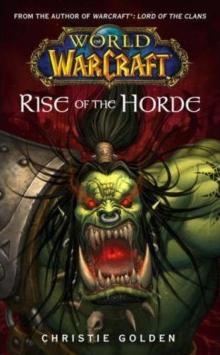 Rise of the Horde
Rise of the Horde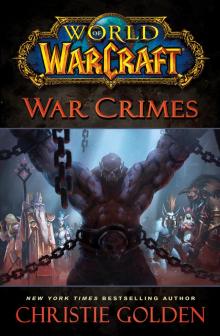 World of Warcraft: War Crimes
World of Warcraft: War Crimes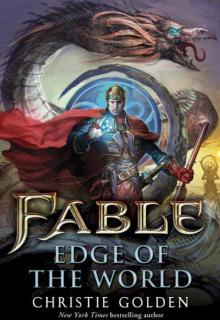 Fable: Edge of the World
Fable: Edge of the World Homecoming
Homecoming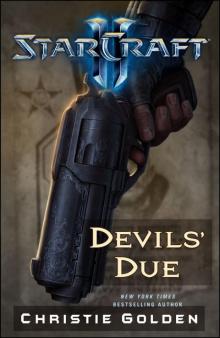 StarCraft II: Devil's Due
StarCraft II: Devil's Due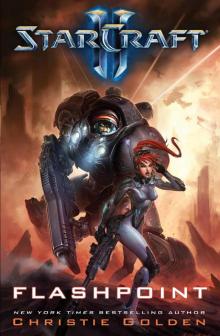 Starcraft II: Flashpoint
Starcraft II: Flashpoint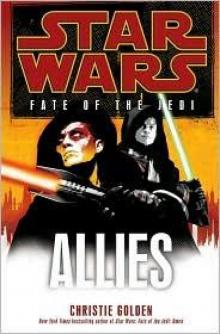 Allies
Allies Shadow Hunters
Shadow Hunters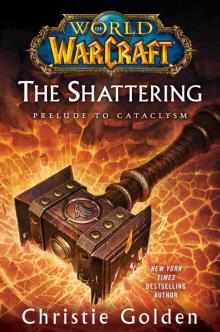 The Shattering: Prelude to Cataclysm wowct-1
The Shattering: Prelude to Cataclysm wowct-1 STAR TREK: VOY - Homecoming, Book Two - The Farther Shore
STAR TREK: VOY - Homecoming, Book Two - The Farther Shore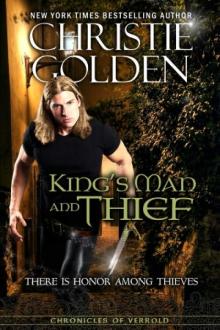 King's Man and Thief
King's Man and Thief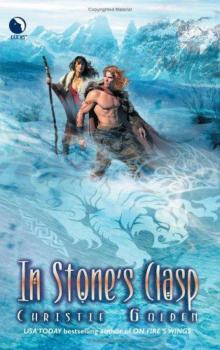 In Stone's Clasp
In Stone's Clasp Jaina Proudmoore: Tides of War
Jaina Proudmoore: Tides of War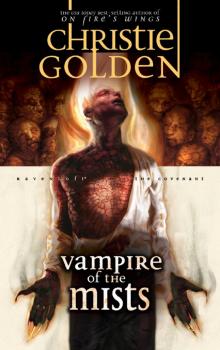 Vampire of the Mists
Vampire of the Mists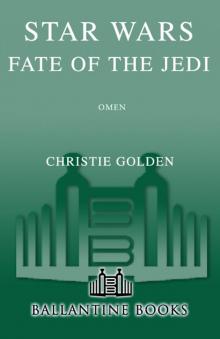 Star Wars: Fate of the Jedi II: Omen
Star Wars: Fate of the Jedi II: Omen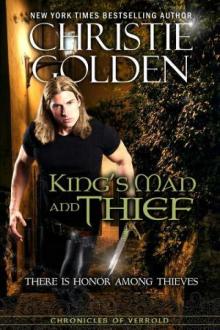 King's man and thief cov-2
King's man and thief cov-2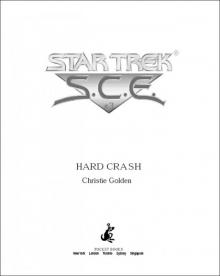 Star Trek
Star Trek StarCraft: Dark Templar: Twilight
StarCraft: Dark Templar: Twilight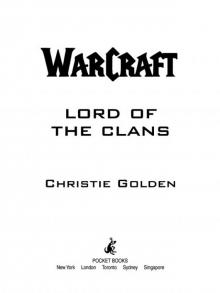 Lord Of The Clans
Lord Of The Clans ARKTIKA.1 (Short Story)
ARKTIKA.1 (Short Story)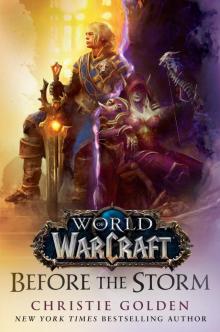 Before the Storm
Before the Storm STAR TREK: VOY - Homecoming, Book One
STAR TREK: VOY - Homecoming, Book One Shadow of Heaven
Shadow of Heaven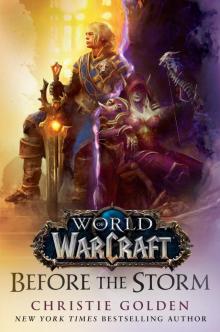 Before the Storm (World of Warcraft)
Before the Storm (World of Warcraft)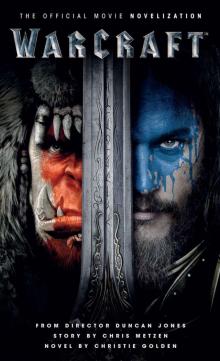 Warcraft Official Movie Novelization
Warcraft Official Movie Novelization Flashpoint
Flashpoint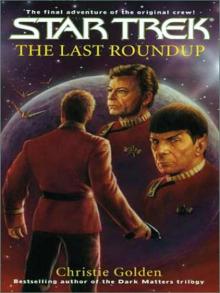 STAR TREK: The Original Series - The Last Roundup
STAR TREK: The Original Series - The Last Roundup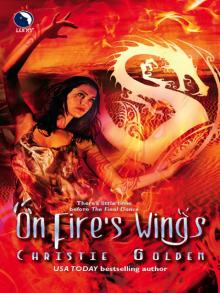 On Fire’s Wings
On Fire’s Wings Spirit Walk, Book One
Spirit Walk, Book One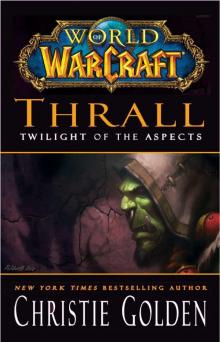 Thrall Twilight of the Aspects
Thrall Twilight of the Aspects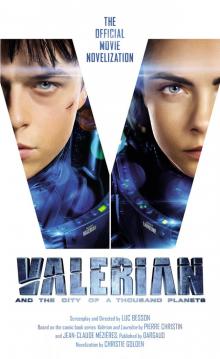 Valerian and the City of a Thousand Planets
Valerian and the City of a Thousand Planets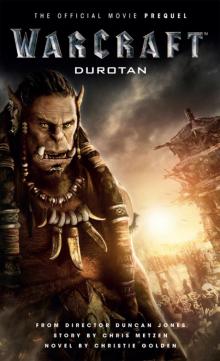 Warcraft
Warcraft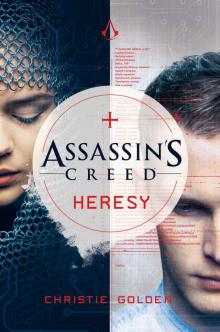 Assassin's Creed: Heresy
Assassin's Creed: Heresy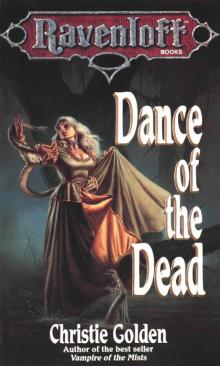 Dance of the Dead
Dance of the Dead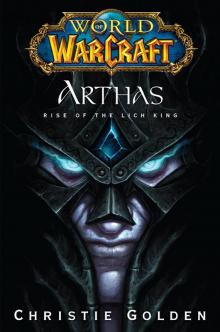 Arthas: Rise of the Lich King wow-6
Arthas: Rise of the Lich King wow-6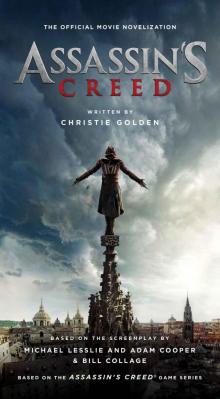 Assassin's Creed: The Official Movie Novelization
Assassin's Creed: The Official Movie Novelization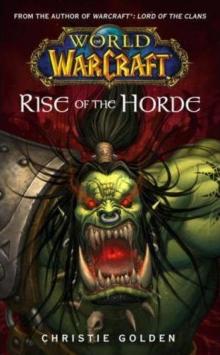 Rise of the Horde wow-2
Rise of the Horde wow-2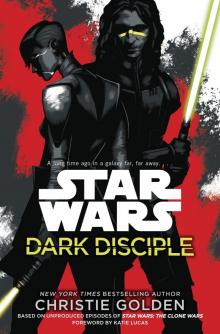 Dark Disciple
Dark Disciple Ghost Dance
Ghost Dance The Shattering
The Shattering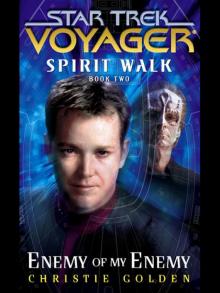 Spirit Walk, Book Two
Spirit Walk, Book Two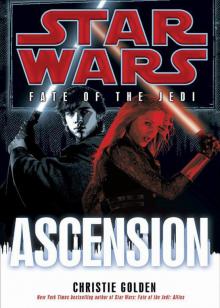 Star Wars: Fate of the Jedi: Ascension
Star Wars: Fate of the Jedi: Ascension Star Wars: Fate of the Jedi V: Allies
Star Wars: Fate of the Jedi V: Allies The Enemy Within
The Enemy Within Kindred Spirits
Kindred Spirits The Farther Shore
The Farther Shore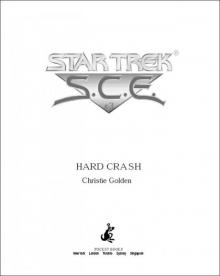 Star Trek: Hard Crash (Star Trek: Starfleet Corps of Engineers Book 3)
Star Trek: Hard Crash (Star Trek: Starfleet Corps of Engineers Book 3) Twilight
Twilight